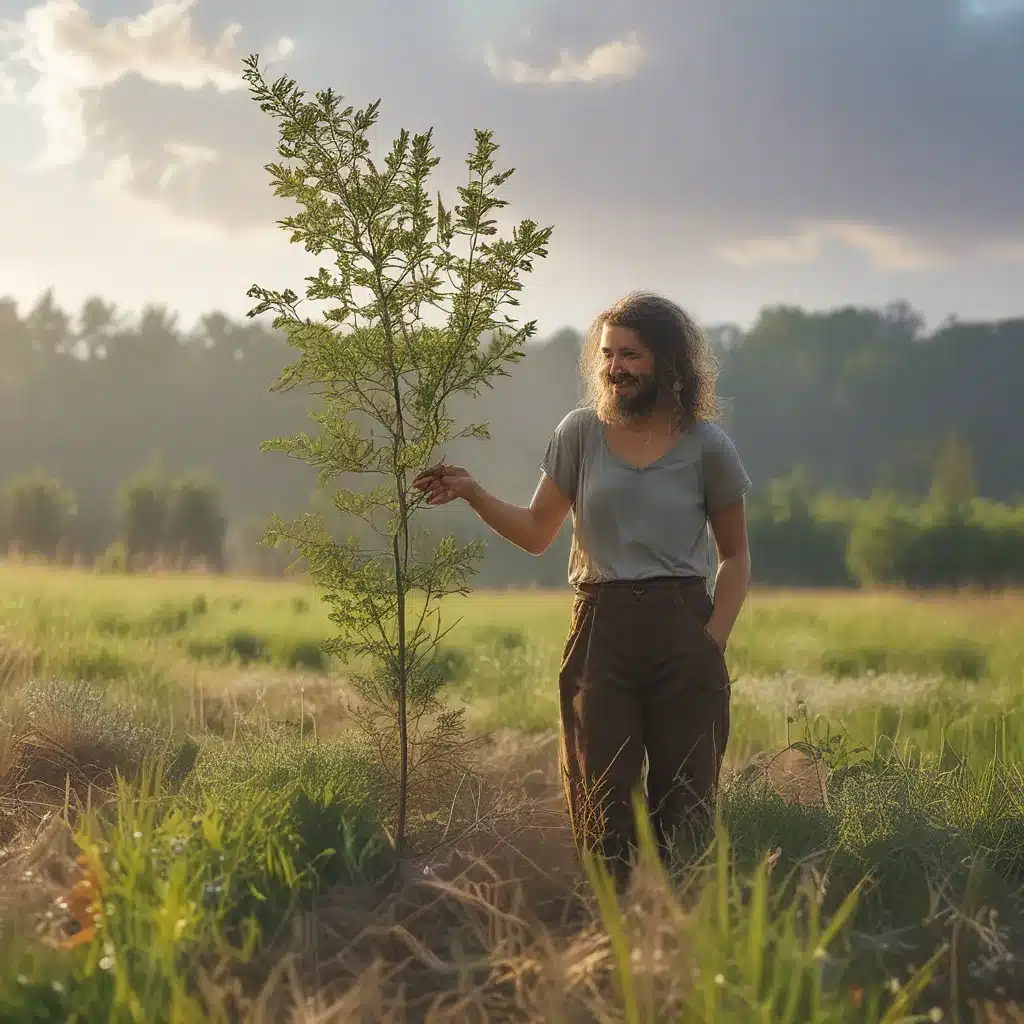
The Indigenous Origins of Regenerative Agriculture
As I sit here, surrounded by the lush greenery of the Thornapple Community Supported Agriculture (CSA) farm, I can’t help but marvel at the deep roots of the regenerative agriculture practices that sustain this vibrant oasis. It’s a humbling realization that the foundations of sustainable farming were laid long before the arrival of European settlers, by the very people they sought to displace.
According to the National Farmers Union, Indigenous populations across the Americas have been actively shaping their environments for centuries through innovative land management and farming techniques. From the intercropping of the “Three Sisters” (corn, beans, and squash) in the Northeast to the intricate irrigation systems of the Hohokam tribe in the Southwest, these ancient practices have laid the groundwork for what we now consider regenerative agriculture.
As I wander the lush rows of produce, I can’t help but wonder about the echoes of the past that reverberate through these fields. The mounds of soil that once drained excess moisture, the controlled burns that nurtured the growth of diverse ecosystems – these are the legacies of the original stewards of this land. It’s a humbling reminder that our modern-day pursuit of sustainability is, in many ways, a rediscovery of ancient wisdom.
Embracing the Wisdom of the Land
One of the core principles of regenerative agriculture that I’ve come to appreciate is the idea of working in harmony with natural systems, rather than against them. This is a lesson that the Indigenous peoples of this land have long understood and embodied.
As the Northeast Farmers of Color Land Trust explains, the relationship between land and people is one of deep reciprocity. Their programs focus on “re-storying our relationship with land” by building bridges with Indigenous communities and restoring native species ecosystems. It’s a holistic approach that recognizes the inherent sacredness of the land and the vital role it plays in sustaining our communities.
Here at the Thornapple CSA, I’ve seen this philosophy in action. The farmers diligently rotate their livestock through the pastures, allowing the land to regenerate and the soil to replenish its nutrients. They utilize cover crops and polycultures to mimic the natural diversity of the ecosystem, promoting resilience and biodiversity. It’s a delicate dance, where the farmers are not just tending to the crops, but nurturing the entire living system that surrounds them.
The Power of Holistic Stewardship
As I’ve delved deeper into the world of regenerative agriculture, I’ve come to understand that it’s about more than just sustainable farming practices. It’s a way of life that encompasses our relationship with the land, our food systems, and our own health and well-being.
The Journeyable blog eloquently captures this holistic approach, describing regenerative agriculture as “a powerful reminder of our ability to make conscious choices that benefit our health, our communities, and the environment.” It’s a perspective that resonates deeply with me, as I witness the transformative power of these practices firsthand.
Here at the Thornapple CSA, the farmers go beyond just growing nutrient-dense produce. They also raise livestock using regenerative methods, embracing the “nose-to-tail” ethos that honors the entire animal. The result is a diverse bounty of food that nourishes both our bodies and our souls, while minimizing waste and maximizing the benefits of their farming practices.
But the rewards of regenerative agriculture extend far beyond the farm gates. By reconnecting with the land and honoring the wisdom of the past, we’re also reconnecting with ourselves and our communities. It’s a powerful antidote to the disconnection and convenience-driven culture that has dominated our modern lives.
Cultivating a Sustainable Future
As I reflect on the lessons of the past and the promise of the future, I can’t help but feel a sense of optimism and determination. The regenerative agriculture movement is not just about growing food – it’s about healing the land, restoring our connection to the natural world, and building a more sustainable and equitable future.
And at the heart of this movement are the Indigenous peoples who have been the custodians of the land for millennia. Their knowledge, their practices, and their deep respect for the Earth are the foundations upon which we must build.
It’s a responsibility that the Thornapple CSA takes seriously, as they work to honor the land and the people who came before. Through their partnerships with organizations like the Northeast Farmers of Color Land Trust, they’re actively working to create pathways for BIPOC farmers to access land, resources, and support.
As I leave the farm, I can’t help but feel a renewed sense of purpose. I’m not just a consumer of the bounty that this land provides – I’m a steward, a caretaker, a collaborator in the grand project of sustainable stewardship. And with every bite of the nutrient-rich produce, every drop of the nourishing tallow, I’m honoring the wisdom of the past and nurturing the promise of the future.
So let us all heed the call of the land, and embrace the regenerative practices that have sustained it for generations. For in doing so, we not only nourish our bodies, but we also heal our connection to the Earth – and to the very roots of our existence.



